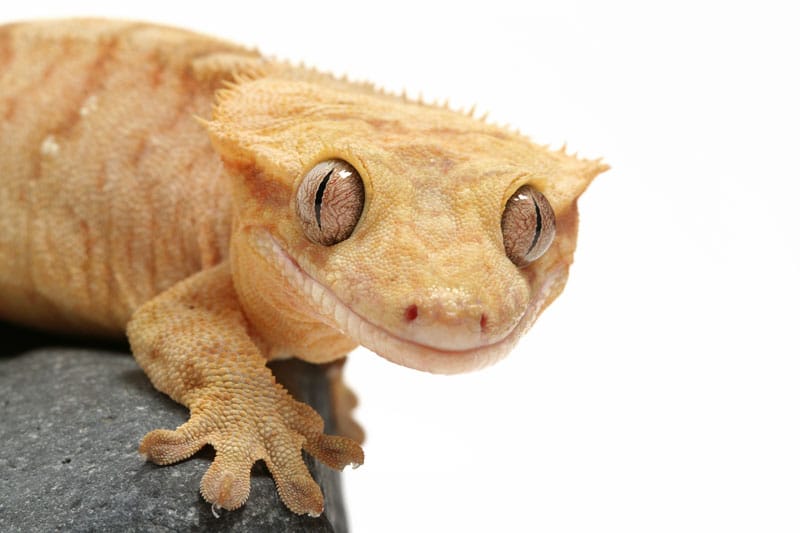Description:
The meteoric rise of this gecko from relative obscurity only a decade ago is testament to its suitability as a pet. Possessing a gentle and curious nature, R. ciliatus rivals leopard geckos even in the development of pattern and color morphs. The crested geckos ability to lay two eggs multiple times per year with relative herpetocultural ease has made them the new favorite in the saurian world of pets. Give the crested gecko an enclosure well-supplied with a tangled assortment of climbing branches, including at least one hollow section large enough to hide inside of during the day. “Cillies” love to climb; ‘sticky’ toe pads and a tail that acts like a fifth-leg help them make use of every bit of arboreal habitat you can provide for them. Crested geckos will reward you with hours of evening entertainment watching their arboreal antics. Offer a variety of live insects such as crickets, mealworms, waxworms, etc., at dusk, when the crested gecko normally becomes active. This is also a good time to use a misting bottle to leave large droplets of water on the branches and plants, which will quickly be lapped up by the thirsty geckos. Fruit-flavored baby food a couple times per week, with a vitamin/mineral supplement mixed in will substitute for the nectar crested geckos would enjoy in the wild. Commercial crested gecko meals are also available that provide all necessary nutrition. Crested geckos are relatively slow-moving, which makes them excellent candidates for frequent handling by pet enthusiasts. Be careful not to tug on their tails too hard – they may break! For more information, read our detailed crested gecko care sheet. .
Habitat:
Forest with high humidity
Range:
Southern New Caledonia
Scientific Name: Rhacodactylus ciliatus
Species Group: gecko
Family: Gekkonidae
Size: 6 to 8 inches
Level: beginner
Weight:
Dangerous: No


